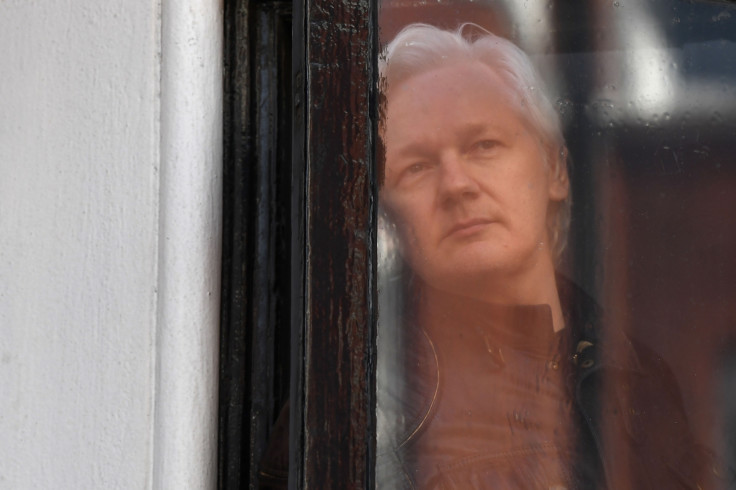WikiLeaks releases 'Spy Files: Russia' detailing shadowy mass surveillance programme
'Spy Files: Russia' includes documents from inside Russian IT company Peter-Service.

Whistleblowing website WikiLeaks has published a new batch of documents allegedly detailing a key slice of the surveillance apparatus within Russia.
The release, dubbed "Spy Files: Russia", purports to show the inner workings of how surveillance contractors in the country operate alongside state authorities and under strict domestic laws, which WikiLeaks said play it fast and loose with privacy.
The latest leak details the so-called "Sorm" infrastructure, which translates directly to the "System of Operative Search Measures."
The programme, managed by authorities from the Federal Security Service of the Russian Federation (FSB) and the interior ministry, is mandated by law and designed to aid the collection of communications.
The leaked files are from a Russian IT company called Peter-Service (Петер-Сервис) and includes 209 documents dated between 2007 and 2015.
The activities of Peter-Service, WikiLeaks said, "extend into the realms of surveillance and control".
Headquartered in St Petersburg, Peter-Service has become a leading tech company and boasts branches in Moscow, Ekaterinburg, Krasnodar, Novosibirsk, Samara and Vladivostok.
But the firm is reportedly eager to help authorities by retaining customer data and has opened up its networks to facilitate internet IP traffic analysis.
"Although compliance to the strict surveillance laws is mandatory in Russia, rather than being forced to comply Peter-Sevrice appears to be quite actively pursuing partnership and commercial opportunities with the state intelligence apparatus," WikiLeaks said.
In 2015, The Guardian reported how early iterations of Sorm had been initiated by the KGB (security services) to tap telephones. This was later adapted to the web.
All Russian telecommunications and internet providers, it found, were required to install "black boxes" into their equipment, which enabled authorities to snoop on whatever they wished. This, of course, was enacted in full without any real oversight or rule of law.
One system detailed in the new WikiLeaks files – known as Traffic Data Mart, or TDM – "records and monitors" IP traffic for all mobile devices registered with the company.
It also appears to maintain a list of "categorised domain names which cover all areas of interest for the state", which can later be turned into analysis reports.
These searchable categories reportedly include blacklisted websites, criminal websites, email, blogs, terrorism, botnets, racism, aggression and many more.
RELEASE: Spy Files #Russia: PETER SERVICE https://t.co/MI4GBGrIGU #SORM #FSB sotrm.j pic.twitter.com/Xe35jY4TJM
— WikiLeaks (@wikileaks) September 19, 2017
Another is Peter-Service's alleged Data Retention System, or DRS, which is used to comply with the mandatory state law of a three-year communications collection period.
The company also offers the state authorities access to Deep Packet Inspection, which is the process of monitoring, filtering and analysing network traffic, typically in real time.
This, WikiLeaks said, will be used for "predicting social and business trends" in Russia.
One presentation, detailing packet inspection, was reportedly written "just a few months" after former US National Security Agency analyst Edward Snowden leaked an unprecedented amount of documents detailing the surveillance capabilities of the American state.
The document made references to the NSA's Prism programme, which was built by the US to scoop up internet data, and offered "law enforcement, intelligence and other interested parties, to join an alliance in order to establish equivalent data-mining operations in Russia".
It won't come as a surprise that such collection is happening. Indeed, every government with the capability to do so will be conducting similar operations at this scale.
What is interesting, however, is how the WikiLeaks' release – which is focused specifically on Russian security relationships – could upset the stance of the US government that it has clandestine links to the Kremlin, which played a key role in the 2016 influence campaign against its election.
For months, WikiLeaks has been releasing documents dubbed Vault 7 about the alleged surveillance capabilities of the US Central Intelligence Agency (CIA).
The website's founder, Julian Assange, has brushed off repeated claims that he was exploited by the Russian state to leak documents designed to help elect Donald Trump to the White House. He previously claimed that the source of his election leaks was not a state actor.
Assange remains in the Ecuadorian Embassy in London under political asylum.
© Copyright IBTimes 2025. All rights reserved.






















